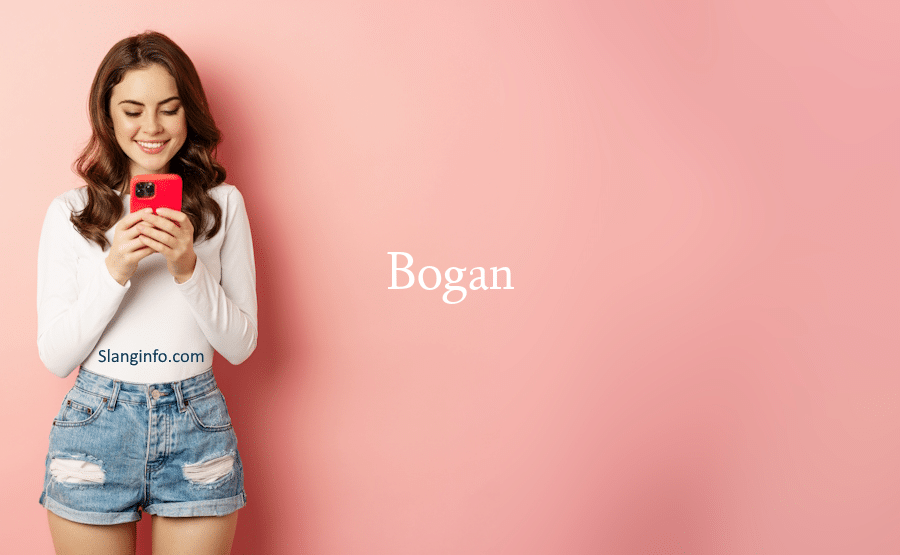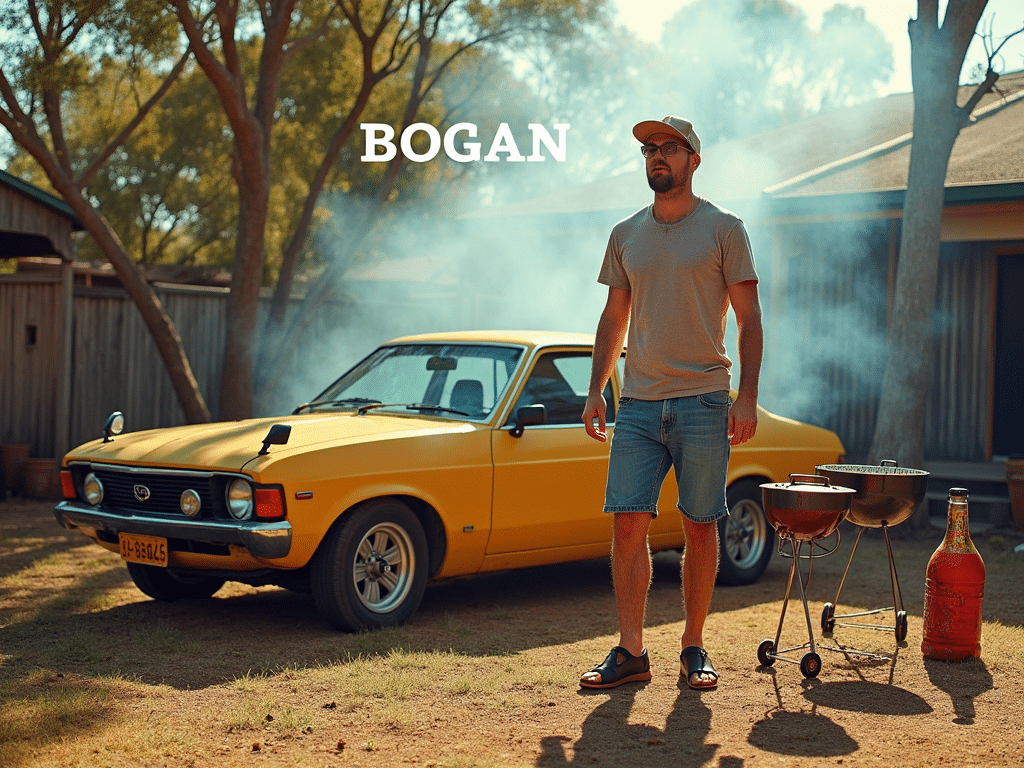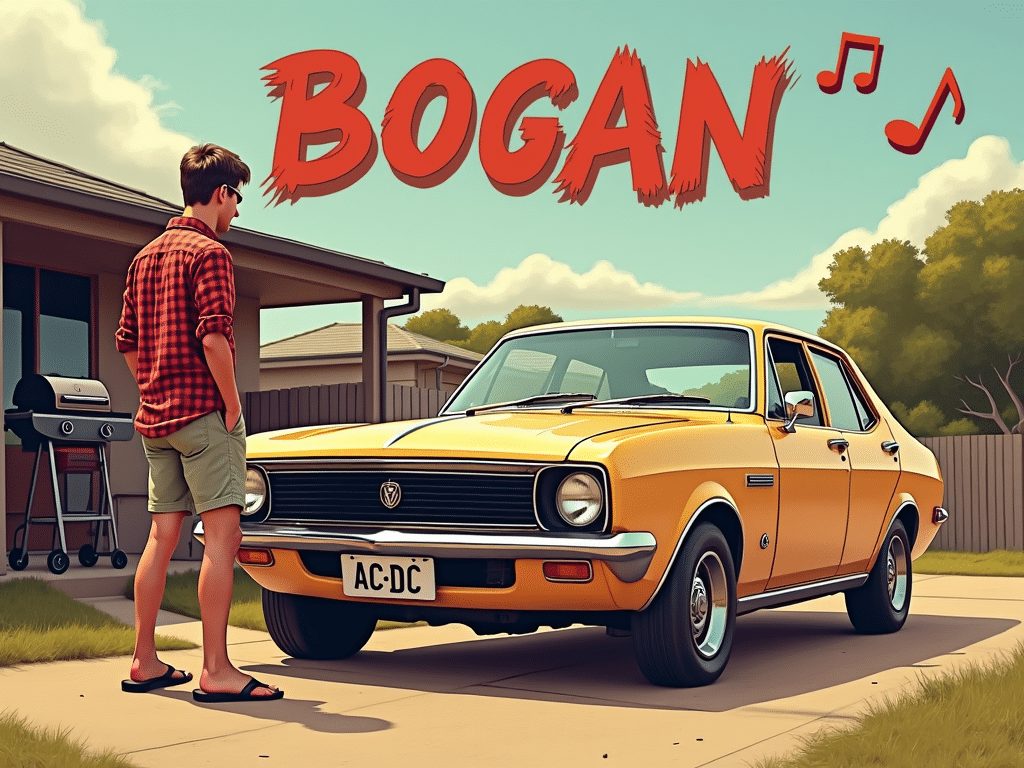G’day, mate! 🙋♂️ Ever heard the term “bogan” thrown around and wondered what the heck it means? Well, buckle up because we’re about to dive deep into this quintessential Aussie slang term that’s been making waves across the land down under.
| Key Takeaways | Description |
|---|---|
| Aussie Slang | “Bogan” is a unique Australian term |
| Stereotypes | Often associated with unrefined behavior and appearance |
| Cultural Significance | Reflects changing attitudes towards social class in Australia |
| Reclamation | Some embrace “bogan” as a source of pride |
| Representation | Frequently portrayed in Australian popular culture |
Bogan: Unraveling the Aussie Cultural Phenomenon 🇦🇺

🤔 Etymology and Origin: Where Did “Bogan” Come From?
The origins of the term “bogan” are about as clear as the waters of the Bogan River in New South Wales. Some reckon it might have something to do with the river or the Bogan Shire, but no one’s quite sure. The first recorded use of “bogan” was in a 1985 surfing magazine, but it’s likely been around longer than that.
👀 Characteristics and Stereotypes: What Makes a Bogan?

When most people think of a bogan, they picture someone with a few rough edges. Bogans are often stereotyped as having:
- A distinct way of speaking that’s a bit rough around the edges
- A love for flannelette shirts, blue singlets, and ugg boots
- A fondness for certain subcultures like rock music and hoon-driving
- A reputation for enjoying a cold one (or several) 🍺
But here’s the thing: not all bogans fit this mold. It’s a stereotype that doesn’t always match reality.
🌍 Socio-Economic and Cultural Implications: More Than Meets the Eye
The term “bogan” is more than just a descriptor – it’s a reflection of Australia’s changing attitudes towards social class. Some people use it to create an “us vs. them” mentality, drawing lines between different groups of Aussies. It’s also been linked to the idea of cultural cringe and tall poppy syndrome, where people are cut down for standing out.
🙌 Bogan Pride and Reclamation: Embracing the Label
Despite the negative stereotypes, some folks have embraced the bogan label with pride. They see it as a way to celebrate being a bit rough around the edges and not conforming to society’s expectations. There’s even a “National Bogan Day” celebrated on Triple J radio! 📻
📺 Representation in Popular Culture: Bogans on the Screen
Bogans have been a staple of Australian popular culture for years. TV shows like “Housos” and “Upper Middle Bogan” have portrayed bogan characters, often in a satirical or comedic light. But some people argue that these depictions aren’t always authentic or fair.
🤨 The Bogan as a Cultural Construct: Is It Real or Imagined?

Some experts argue that the bogan is more of an imagined stereotype than a real identity. They reckon it’s a product of class-based judgments and middle-class snobbery. After all, who gets to decide what makes someone a bogan? It’s a label that’s often thrown around without much thought.
Here’s the thing: defining what makes a bogan is about as easy as herding cats. 🐱 Everyone seems to have their own idea of what a bogan is, and those ideas don’t always match up. It’s a complex and often contradictory term that defies easy explanation.
🤔 Conclusion: The Bogan Enigma
At the end of the day, the term “bogan” is a bit of a mystery wrapped in an enigma. It’s a unique and enduring part of Australian culture and identity, but it’s also a label that’s been used to stereotype and divide people.
Whether you embrace the bogan label with pride or think it’s a load of rubbish, there’s no denying that it’s a term that gets people talking. It’s sparked debates about class, culture, and what it means to be Australian.
As for me, I reckon the bogan is like a meat pie – it’s a bit messy and not everyone’s cup of tea, but it’s a quintessential part of the Aussie experience. 🥧 So next time you hear someone call you a bogan, just remember: it’s not always a bad thing. Embrace your inner bogan and wear it like a badge of honor! 🎖️
🙋♂️ FAQs
Q: Is “bogan” an offensive term?
A: It depends on the context and who’s using it. Some people find it offensive, while others embrace it with pride.
Q: Are bogans only found in Australia?
A: While the term “bogan” is unique to Australia, similar stereotypes exist in other countries (e.g., “rednecks” in the US, “chavs” in the UK).
Q: Can you be a bogan if you’re wealthy?
A: Some people argue that being a bogan is more about attitude and behavior than socioeconomic status. So, in theory, yes – but it’s a matter of debate.
Q: What’s the difference between a bogan and an ocker?
A: “Ocker” is another Aussie slang term that refers to someone who embodies traditional Australian values and traits. While there’s some overlap with the bogan stereotype, not all ockers are considered bogans.
Q: Is there a female equivalent to the term “bogan”?
A: Some people use the term “bogan chick” or “bogan sheila” to refer to women who fit the bogan stereotype. However, the term “bogan” is often used gender-neutrally.
So there you have it, folks – a deep dive into the wild and wacky world of the Aussie bogan. Whether you love ’em or hate ’em, there’s no denying that bogans have left their mark on Australian culture. So next time you spot someone rocking a mullet and sipping a VB, just remember: they’re not just a stereotype – they’re a true blue Aussie icon. 🇦🇺
Stay classy, mates! 😎 TTYL!







